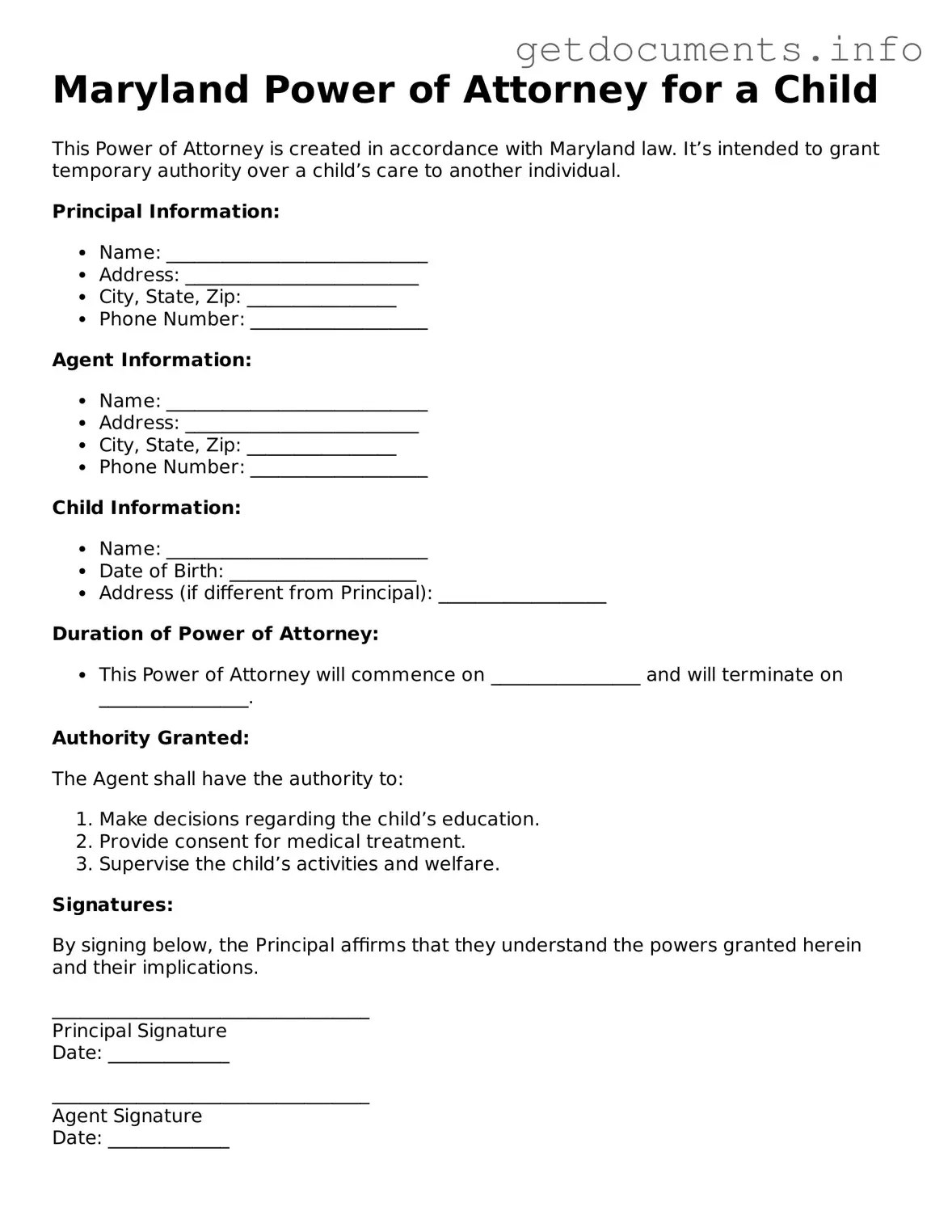Free Power of Attorney for a Child Template for Maryland
The Maryland Power of Attorney for a Child form is a legal document that allows a parent or guardian to grant another adult the authority to make decisions on behalf of their child. This form can be essential in situations where parents are temporarily unavailable, ensuring that a trusted individual can care for the child and make important choices regarding their well-being. For those looking to complete this form, click the button below to get started.
Access Power of Attorney for a Child Editor

Free Power of Attorney for a Child Template for Maryland
Access Power of Attorney for a Child Editor
Got places to be? Complete the form fast
Fill out Power of Attorney for a Child online and avoid printing or scanning.
Access Power of Attorney for a Child Editor
or
⇩ PDF File
